GP Taylor is one of self-publishing's success stories. The former vicar sold his motorbike to fund the first print run of his children's novel Shadowmancer; its popularity, driven by the author's tireless campaigning, led to a publishing deal with Faber & Faber and a career as a New York Times bestselling author. He seemed to have made the transition from amateur to professional without a backward glance - but eight years on, he's considering going back to self-publishing.
He's not the only one. With Bowker reporting an "explosive growth" of 169% last month in "non-traditional" publishing, it's not just vanity projects that are taking the self-publishing route these days. Amazon announced last week that John Locke had sold 1,010,370 Kindle books using Kindle Direct Publishing, making him the first self-published author to join the "Kindle Million Club", alongside the likes of Stieg Larsson and James Patterson. Meanwhile, self-published authors Louise Voss and Mark Edwards currently top Amazon.co.uk's Kindle bestseller list, and say they're selling up to 1,900 copies a day of their jointly-written thriller, Catch Your Death. Faulkner award-winning author John Edgar Wideman last year chose to publish his new collection of short stories through Lulu.com; the site, offering authors an 80/20 revenue split, has published over 1.1 million authors to date, adding 20,000 titles to its catalogue a month. Writers around the world are getting their books to readers – and getting paid for it – without a publisher standing in between. Self-publishing, it seems, is becoming respectable.
"I'm a real advocate of self-publishing," says Taylor, explaining why he's thinking about going back to self publishing for his new book, an adult crime novel. "With the number of authors out there, I'm just one of many midlist writers. I'm not a celebrity, and book sales are pretty bad at the moment. [But] with self-publishing, it's a case of if it's good, people will buy it, and with the internet you can get people to notice it." And David Moody, who was making a £1,000 a month self-publishing his horror novels until he attracted the attention of film producer Mark Johnson and landed deals with Thomas Dunne Books in the US and Gollancz in the UK, also believes self-publishing is a serious option for new writers. "I'm actually a little miffed that I'm not self-publishing right now! I might even go back to it at a later stage," he says. "This new route to market is, in my opinion, becoming a viable alternative to the old submission and rejection merry-go-round … it's undoubtedly easier for writers to get their books out and for readers to find them today than it was just a few years ago. Sites like Lulu and Amazon's CreateSpace allow them to produce print editions of their books without the hassle of setting up a publishing business and dealing directly with print-on-demand publishers."
It's the internet, and the inexorable rise of ebooks, say authors, that have been the game changers. Even JK Rowling has finally bowed to the inevitable, announcing this week that she and her publisher, Bloomsbury, would be launching ebooks on her new website, Pottermore (and not, incidentally, sharing ebook revenues with booksellers). Taylor, meanwhile, is selling more ebooks than paperbacks by six to one. "What's the point in going to a publisher for them to cream off the profit? You can put an ebook up in a week".
What's more, self-published authors can experiment with price, offering books for free online, or for low price points that will entice readers. Moody made a name for himself by giving away his zombie novel Autumn from his website, in the process creating fans who would pay for subsequent novels. Locke's bestselling Kindle ebooks are all priced at $0.99. "When I saw that highly successful authors were charging $9.99 for an ebook, I thought, if I can make a profit at 99 cents, I no longer have to prove I'm as good as them," he told the Wall Street Journal. "Rather, they have to prove they are 10 times better than me."
His website claims that one of his novels is downloaded somewhere in the world every seven seconds, and he's now written a new Kindle book, How I Sold 1 Million eBooks in 5 Months. Voss and Edwards are selling Catch Your Death for 95p because, says Voss, "the huge advantage of having priced it really cheaply is that people think, 'What have I got to lose?" Paranormal romance writer Amanda Hocking, who has now signed a deal reported to be worth more than $2m with St Martin's, sold her ebooks herself for between $0.99 and $2.99. She's now sold upwards of a million.
"Ebooks have completely changed self-publishing, forever," says US author Scott Sigler, who self-published his novel The Rookie ("Star Wars meets The Blindside meets The Godfather") after his publisher Crown decided it wasn't for them. "Anyone can make a book and deliver it right to the end audience, without the gatekeepers in place. Some people think that's bad, that sub-par fiction gets into the market. However, I believe the market takes care of itself. You get bad stories, sure; you had bad stories with small, mid-size and large publishers as well. But, you also get stories that would have been rejected from most publishers, yet resonate with the end reader and sell thousands, tens of thousands, even hundreds of thousands of copies."
Moody agrees. "Two major developments have had a hugely beneficial impact on self-publishing. Firstly, changes in technology, in particular the adoption of ebooks by the mainstream thanks to Amazon's Kindle, the iPad, etc," he says. "If you're a self-publishing author today, you have a vast audience waiting, and a decent number of professional channels through which you can easily make your work available. I personally know authors who are doing this to great effect – some are making over $10,000 every month! Secondly, the advent of social networking has had an incredible effect."
Thriller novelist Barry Eisler turned down a reported $500,000 from St Martin's Press to go his own way. "The key dynamic at work in self-publishing is legacy publishers' loss of their lock on distribution," he says. "It used to be that if you wanted to distribute your book in meaningful numbers, you needed a partner with a sales force, and relationships with wholesalers, retailers, and printing presses. Digital has changed that. Before, the question that had to be asked by a would-be self-published author was, 'How will I distribute?' It used to be that there was no good answer. Today, digital has definitively answered it. The question for a would-be self-published author now is just, 'How will I market?' And that question has a lot of available answers." Eisler experimented in February by self-publishing short story The Lost Coast for $2.99, a "premium price" for a short story, just to see how it would perform. It's been earning him around $1,000 a month, he says, "and my latest short story, Paris Is a Bitch, which I self-published in April, is doing even better."
The thriller author is an interesting case. After turning down the St Martin's deal to self-publish, he subsequently signed up to a one-book deal with Amazon for a six-figure sum, but will continue to self-publish other titles. The way he explains it, the numbers make sense.
"To understand what the traditional advance really represents, you have to break it down. Start by taking out your agent's commission: your $500,000 is now $425,000. Then divide that $425,000 over the anticipated life of the contract, which is three years (execution, first hardback publication, second hardback publication, second paperback publication). That's about $142,000 a year. This is a more realistic way of looking at that $500,000," he says.
"But there's more. Some people have mistakenly argued that, for my move to make financial sense, I'll have to earn $142,000 a year for three years. But this is one time when you don't want to be comparing apples to apples. Because the question isn't whether I can make $425,000 in three years in self-publishing; the question is what happens regardless of when I hit that number. What happens whenever I hit that point is that I'll have 'beaten' the contract, and then I'll go on beating it for the rest of my life. If I don't earn out the legacy contract, the only money I'll ever see from it is $142,000 per year for three years. Even if I do earn out, I'll only see 14.9% of each digital sale thereafter. But once I beat the contract in digital, even if it takes longer than three years, I go on earning 70% of each digital sale forever thereafter. And, as my friend Joe Konrath [another successful self-published author] likes to point out, forever is a long time."
So why go the Amazon route for one of his books? Because, he says, "Amazon offered me the best of both worlds, legacy and indie. The advance and marketing muscle you (might) get in a legacy contract; the kind of digital royalties, creative control, and time-to-market you get with indie". So he's giving up "something like 20% or 30%" of his digital retail channels, but he's gaining Amazon's "marketing muscle" – "and if Amazon blows out the marketing for The Detachment, [his current and future self-published books] will benefit enormously".
Ebooks might have been the game changer for self-publishing, but Amazon has also been a huge enabler. Offering 70% royalties to authors who publish their books on the Kindle and sell them for between £1.49 and £6.99, or 35% royalties for books sold for less than £1.49, the online retailer provides a shop front for thousands of self-published writers, good, bad and ugly.
Voss and Edwards used it to their advantage, listing the full title of their ebook on Amazon as Catch Your Death (for fans of Dan Brown and Stieg Larsson). This catapulted the book to the top of searches – and in fact, says Voss, it was so successful that Amazon decided to remove the "subtitle", in an attempt to block self-publishers looking to market their work in a similar way. "After four days the subtitle was removed. While this hasn't affected the book's ranking at all, it does mark a sea-change in how self-publishers will be able to promote their work in future. Cross-promotion is used by book publishers every day, but despite Amazon's move we are still at the top of the list," she says. "I just assumed [the book] would end up as number 37,000 on the Amazon charts. Now, we've made the top spot for a fortnight. As far as we know, we're the first truly independent authors to get two of our books in the UK top five."
Marketing is a must for self-published authors: there's an awful lot of material out there to compete with. Eisler has a "pretty strong online presence" through Facebook, Twitter, and his blog, The Heart of the Matter, and a large mailing list – he's also an established author with a good following. Moody "used to take every opportunity I could to whore my wares"; Sigler promoted his books to his podcast audience.
Design is also important, says Moody. "I think a fundamental key to the success I had with Infected Books was the fact that the books looked professional. Many self-published authors at the time (and still today, I think) seemed to spend months writing their book, then just minutes packaging and marketing it. I took the approach that the look and the branding was as important as the content. I didn't want anyone to suspect this was just a one-man cottage industry."
But content, of course, is key. "None of this matters a damn if you can't deliver the goods. It doesn't matter how tech savvy you are, or how well you can market, your book has to be readable if you want to survive," says Moody, admitting that "the ease with which you can self-publish your own work (or set up as a publisher and publish other people's) has had an unfortunate side-effect, and that's to hugely increase the amount of poorly produced work which is available".
Sigler agrees. "Write the best book you can, hire a real editor to make it better. Have it professionally copy-edited to remove typos. Get a real cover artist – if you're not a professional artist, don't do your own cover. Get that book into ebook form. Start promoting, and start on your next book. Repeat, repeat, repeat."
So what does the rise of self-publishing mean for traditional publishers? Nothing good, say authors, unless they wake up to the new world: to the fact that readers want cheap ebooks, quickly, in tandem with print editions. Otherwise, rather than hearing about self-published authors who "make it" by landing a traditional deal, we'll be hearing about other writers who decide to take a similar route to Eisler's and go it alone.
"Publishing has always been a quasi-monopoly built on the lock publishers had on paper distribution. Digital distribution has broken that lock, but legacy publishers are still behaving as though they have monopoly power," believes Eisler. "They're running their business with two general imperatives in mind: (i) maintain the primacy of paper (in significant part, by delaying the release of digital books and pricing them too high); and (ii) offer punitive financial, creative, and other terms to authors. Or, to put it another way, publishers are currently running their business in a way that punishes both their end-user customers (readers) and their providers (authors). This was sustainable when publishers faced no meaningful competition. They do now, and will have to adapt or die, because yes, more and more authors are eschewing the legacy model in favour of self-publishing and in favour of the emerging Amazon hybrid model."
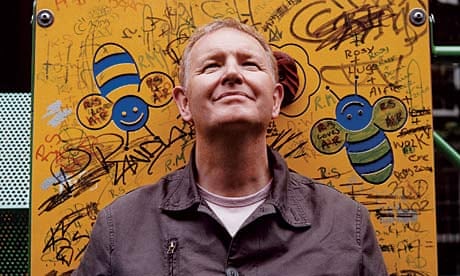
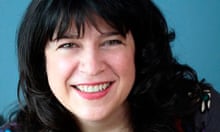



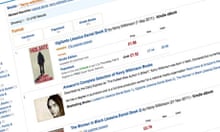
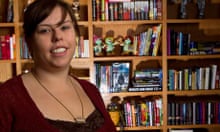
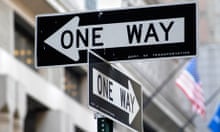
Comments (…)
Sign in or create your Guardian account to join the discussion